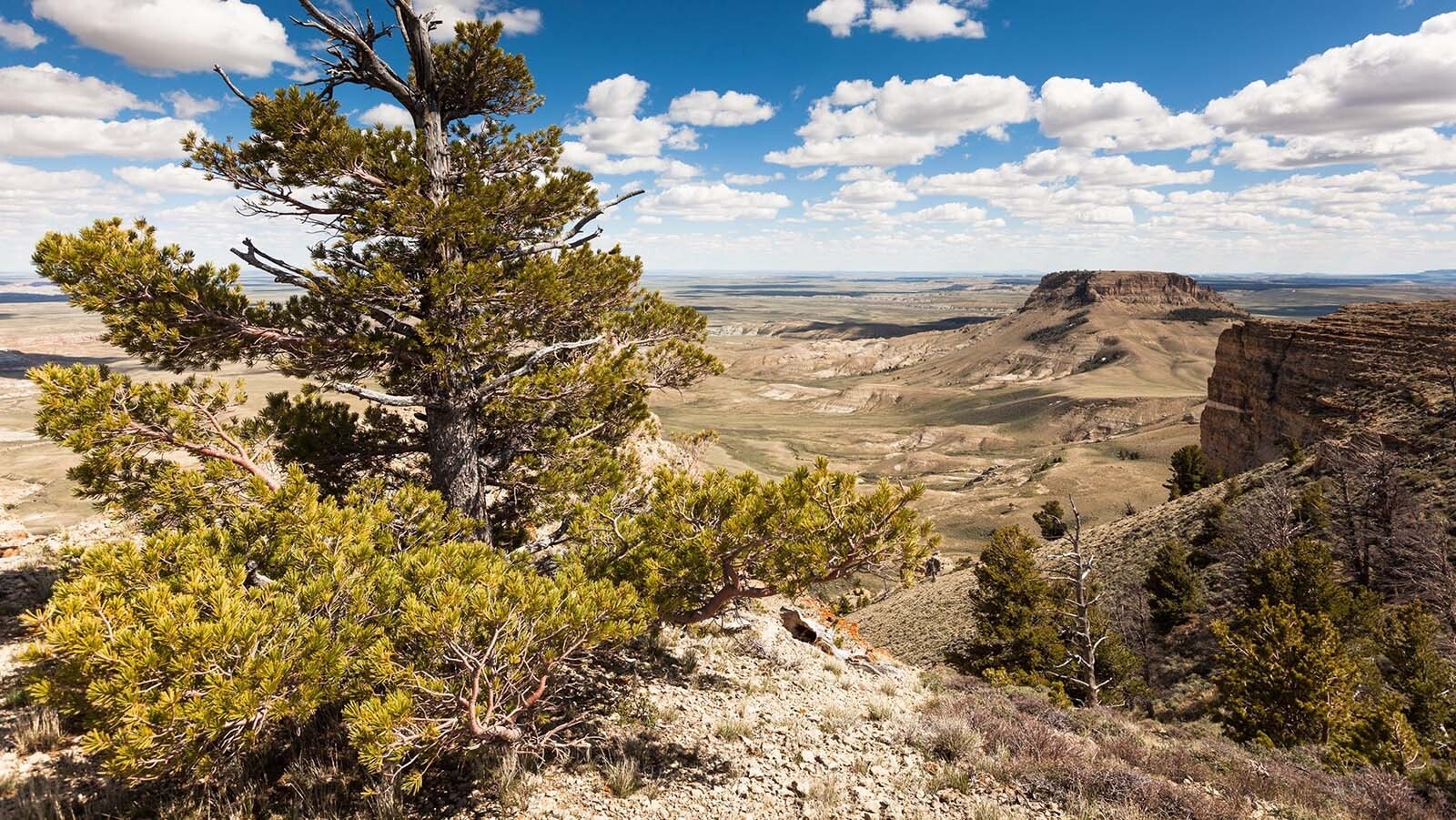A legislative committee has passed a draft bill that would dedicate $50 million to helping Wyoming fight the BLM’s proposed Rock Springs Resource Management Plan (RMP).
The $50 million proposal was brought through an amendment sponsored by Rock Springs Republican Sen. John Kolb, who said the BLM’s current proposal could risk billions of dollars in lost revenue for the state and other states if similar proposals are enacted.
“It’s the future of Wyoming, it’s the future of my kids and grandkids, that’s what this money is there to fight,” he said during the Agriculture, State and Public Land and Water Resources Committee’s Monday meeting in Laramie. “If it’s more money that’s needed, I’m perfectly happy to put more money toward it to fight this battle.”
The amendment and the bill it was attached to passed unanimously. This bill would authorize the Legislature to prosecute actions involving the administration and interpretation of federal land acts.
Kolb said the $50 million appropriation sends a message.
“It conveys the seriousness of this matter and the seriousness of what this bill is trying to address,” he said.
State Rep. Dalton Banks, R-Cowley, said he isn’t optimistic that anything can be done to stop the RMP moving forward and the issue will inevitably end up in court, which the state will need money to litigate.
Kolb’s proposal would include the creation of a new state fund for the money.
The Select Federal Natural Resources Management Committee has proposed separate legislation that would set aside $10 million to, among other things, set up a new position in the governor’s office to coordinate efforts to protect the state’s interests from the BLM and its preferred Rock Springs plan.
The Legislature also has already set aside money within its biennial budget for Gov. Mark Gordon to litigate certain matters. The new proposal, however, would allow the Legislature to pursue litigation on its own behalf and outside of the governor’s discretion.
“It’s a political statement to react to what’s going on,” Kolb said.
Equal Partnership
Sen. Cheri Steinmetz, R-Lingle, co-chair of the Ag Committee, said she sees the allocation as Wyoming asserting its jurisdiction, and brought an amendment reflecting this.
The legislation would also assert that Wyoming is a co-equal branch of the federal government in its right to manage land within its own state borders.
“I think it’s important that we start to regain and recognize the authority of the Wyoming state Legislature and this situation has brought to bear a real need for that in Rock Springs and our dealings with the BLM and this current administration,” said Steinmetz, who successfully passed an amendment claiming Wyoming’s equal standing.
Committee co-chair Rep. Barry Crago, R-Buffalo, said he supports Steinmetz’s amendment, but questioned if it would limit the state’s ability to pursue lawsuits on other matters. Kolb said as long as language is added to the bill clarifying that it won’t detract from any current legal avenues there should be no issue.
No Cooperation
As originally written, the bill would have declared the state Legislature as a cooperating agency with the federal government in its regulation of various regulatory land acts, but the BLM would still have to recognize the Legislature as a cooperating agency to actually act upon that status. This part of the bill ended up being removed.
Rep. Jon Conrad, R-Mountain View, described the term “cooperating” as an oxymoron and questioned how much more leverage it would actually give the state of Wyoming.
“They could just blow us off, for the lack of a better southwestern term,” said Conrad.
Under federal guidelines the BLM is expected to use the analyses and proposals of a cooperating agency “to the maximum extent possible consistent with its responsibility.”
Cooperating agencies contribute their own staff to help develop environmental impact studies and develop and review analyses for which they have particular expertise.
Anna Johnson, a staff attorney with the Legislative Service Office, said she isn’t aware of any legislature in the nation that has cooperating agency status, but state agencies, local governments, tribal governments and other federal agencies are technically eligible. A legislature is not considered a state agency.
Rep. Bob Davis, R-Baggs, said Wyoming’s cooperating agencies “were blown off too” when it came to their input on the land management decision.
“I don’t know what this really achieves us cooperating status as the Legislature,” he said. “There’s got to be a different tool that is available to us to attack this problem, I would think.
Steinmetz expressed concern that it doesn’t seem like Wyoming lawmakers ever have much of a voice when it comes to influencing the BLM’s decisionmaking on the land management plan. She said a cooperating status could actually be a weaker hand the state could play when compared to its power to enforce its jurisdiction.
“I’m not willing to concede that we’re a cooperating agency,” she said. “We’re a state legislature of a sovereign state, and I think we’re all tired of being blown off.”
The U.S. Constitution requires the approval of a legislature to approve land sales with the federal government that turn private land over to federal hands.
Sen. Bob Ide, R-Casper, said Wyoming is “getting locked and loaded for not getting pushed around anymore by the big guys in D.C.”
He sees the proposed legislation as a mechanism to give the Legislature standing to argue against an action it sees as being harmful, and passed an amendment that extends the litigation power to cover purchase of federal lands in the state.
To pursue litigation, a majority of legislative members, or ⅔ of the Management Council during an interim session, would need to offer support.
Leo Wolfson can be reached at leo@cowboystatedaily.com.





